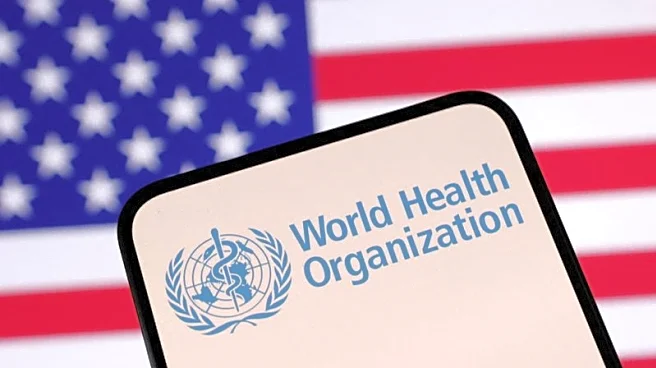What's Happening?
A recent advice column from NPR's Life Kit explores complex financial dilemmas faced by individuals in family and friendship contexts. Behavioral scientist Wendy De La Rosa and author Katie Gatti Tassin provide insights into managing financial expectations and emotional connections. The column addresses scenarios such as an aunt struggling with gift-giving for 18 nieces and nephews, a friend considering financial support for a cancer-stricken friend, and a young adult navigating financial independence from parents. The experts emphasize the importance of understanding underlying relationship dynamics and finding creative solutions that align with personal values and financial boundaries.
Why It's Important?
These discussions highlight the intersection of financial management and personal relationships, a common challenge in American society. The advice underscores the need for individuals to balance financial generosity with personal financial stability, especially in the context of healthcare costs and familial expectations. The insights provided can help individuals navigate these situations with empathy and practicality, potentially reducing stress and fostering healthier relationships. This is particularly relevant in the U.S., where healthcare costs can be exorbitant and familial financial expectations can vary widely.
What's Next?
Individuals facing similar dilemmas may consider applying the advice to their own situations, potentially leading to more thoughtful financial planning and relationship management. The column encourages readers to reflect on their values and explore non-monetary ways to strengthen relationships, such as organizing family gatherings or providing emotional support. As these conversations continue, there may be increased advocacy for systemic changes in healthcare and financial literacy education to alleviate such personal financial burdens.
Beyond the Headlines
The advice column also touches on broader societal issues, such as the inadequacies of the U.S. healthcare system and the cultural expectations surrounding financial support within families. These discussions may prompt readers to consider the ethical implications of financial decisions and the role of policy in shaping personal financial challenges. Long-term, this could lead to increased dialogue about healthcare reform and financial education initiatives.












